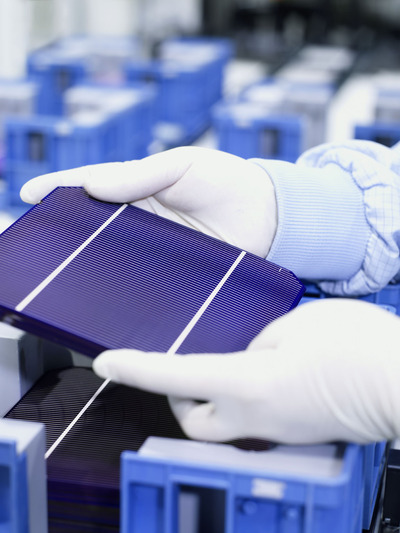Small improvements
Nanotechnology could be the key to producing better batteries for handheld radios.
In news that will be of great interest to manufacturers of portable radios and mobile radios, a study from the IEC (International Electrotechnical Commission) and the Fraunhofer Institute for Systems and Innovation Research ISI has found that nanotechnology will bring significant improvements in energy storage and solar energy.
Improved materials efficiency and reduced manufacturing costs are just two of the real economic benefits that nanotechnology already brings these fields, and that’s just the beginning. Battery storage capacity could be extended, solar cells could be produced more cheaply and the lifetime of solar cells or batteries could be increased, all thanks to continued development of nanotechnology.
In the study ‘Nanotechnology in the sectors of solar energy and energy storage’, commissioned by the IEC (International Electrotechnical Commission), the Fraunhofer ISI found that there is a whole range of nanomaterials which will grow in importance as technology continues to advance.
A key finding is that technologies where ‘nano’ already plays an important role will be of special interest for industry and research, particularly in relation to organic and printed electronics, nano-coatings, nano-composites, nano-carbons and nano-electrodes.
For example, through the use of nanotechnology, the light and energy generation of crystalline silicon solar cells or organic solar cells can already be enabled or significantly increased. Their manufacturing also requires less material and is more cost-efficient.

Energy storage capacity will significantly improve with the use of nanomaterials for lithium-ion batteries. This is by far the most important battery technology for energy storage since the early 1990s. It is especially important in view of the constantly increasing demand for longer life and better performance for batteries used in handheld communications.
Dr Björn P Moller, project leader of the study, is convinced that everything points to nanotechnology’s large-scale application in solar power generation (for instance, on vehicle roofs and remote radio communications sites) and energy storage, unlike many other fields where nanotechnology has been unable to make a breakthrough.
“It is therefore crucially important that key technologies such as solar cells are further developed with the help of nanotechnology and that energy storage is improved,” said Moller. “In some areas nanotechnology may even be a key to success. There is great potential for nanotechnology to help to mitigate the intermittency of renewable energy.”
“Commissioning this study to evaluate the potential of nanotechnologies and the future role of nanomaterials in addressing the energy challenge helps the IEC to understand the kind of work that it needs to undertake to enable the broad rollout of these technologies,” said IEC General Secretary and CEO Frans Vreeswijk.
“Against the backdrop of an anticipated 30% increase of global energy demand by 2035 and the significant expansion of renewable energy coming into the grid, the study has found that nanotechnologies including new nanomaterials could be a key to successful renewable energy and energy storage integration.”
The study will be of great use for those planning the use of solar energy and storage, whether they make products, use those products to generate and store electricity, or organise and regulate the use of the electric energy produced.
The Fraunhofer Institute for Systems and Innovation Research ISI analyses emergence and effects of innovation. The IEC brings together 165 countries and almost 14,000 experts to cooperate on the global IEC platform to ensure that products work everywhere safely with each other.
SAPOL engages RFI for in-vehicle repeater upgrade
An SA Police in-vehicle repeater upgrade aims to enhance officer safety and communications.
Customised rugged tech shaping the next era of defence comms
Rugged computing platforms are becoming central to how armed forces protect communication...
A guide to aquatic survival this summer
While most Australians are planning aquatic adventures this summer, less than a third are...



